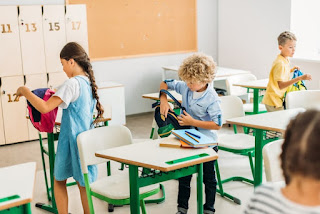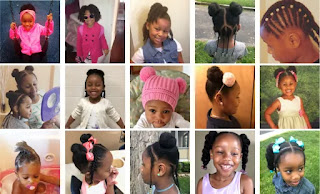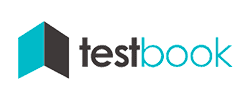Teaching Moments - Are you frustrated with public school?
Join the growing number of parents and teachers!
Fact: Last year, our nation spent $382 billion on education. Over 99% is spent on the "learning environment" - buildings, books, science labs, teachers, sports programs, etc. The other part of the equation - what children can do for their education - is almost completely ignored.
Our focus as concerned adults must be on the other side of the equation – getting children to take more ownership of their education. Will we give them the tools to "step up to the plate" and take positive action on their education?
Set the main goal! But, wait a minute. Aren't they already teaching this in schools? Yes, but there is a significant difference between the way public and private schools teach these important life skills.
Why the difference between public and private schools? Private Schools:
1. Make goal setting and educational ownership a priority. 2. Integrate these principles into the student's educational experience. 3. Students are taught that they are directly responsible for the quality of their education.
4. Goal setting and educational ownership are fundamental to the success of their students and schools.
%%%%%%%%%%%%%%%%%%%%%%%%%%%%
YOU MAY TIKE THIS
Transforming Your Thoughts Is Key For Dealing With Depression
Government Schools:
1. Teach goal setting as a small part of a larger program. 2. Under great pressure to complete large programs in a given time. 3. Goal setting and educational ownership are not integrated with the school curriculum. 4. Do not teach students how to specifically use goal setting in the classroom.
Did you say "this is my school" in any of the above statements? Many parents cannot afford to send their children to private school, but still want them to have the tools they need to succeed.
Your child will benefit greatly from learning how to set and achieve goals and use these principles in school. When your child takes educational ownership they take personal responsibility for doing something meaningful and positive to change their life. Your child will learn that they play an important role in their education and their future. With educational ownership comes dignity and self-respect.
Do you push your kids too fast? Of course, you want your kids to grow up slower than they are today. You know they are bombarded with negative influences from the internet, radio, TV, MTV, etc However, you realize that your most important job is to teach them how to deal with the world's challenges You want your children to grow up to be honest and caring, responsible, initiative and respectful adults. You want them to develop a positive attitude, overcome their fears and succeed in whatever they want to do. In short, you want it for them and you are willing to sacrifice to help them.
Private schools prioritize goal setting and educational ownership for good reason. This is key to helping a child develop an "I'll make it happen" attitude that will have a positive impact on their school participation, student achievement, character development, attendance, disciplinary issues and test results.
%%%%%%%%%%%%%%%%%%%%%%%%%%%%
RECOMMENDED FOR YOU
Self Improvement And Success Go Hand In Hand
When your child understands and applies the principles of goal setting and educational ownership, they will make better decisions, make fewer excuses, take more responsibility, and embrace your efforts to help them succeed.
Please visit the website for your free subscription to Mr. Bishop's "Teaching Moments".
John Bishop's Goal Setting for Students.com
Free Reprint Rights - You may publish this article electronically or in print, in whole or in part, as long as the byline and website address are included.
John Bishop is the Executive Director of Accent On Success®, an organization dedicated to giving parents, teachers and other caregivers the tools they need to help children succeed in school and in life. He is the author of Goal Setting for Students. http://www.GoalSettingForStudents.com
%%%%%%%%%%%%%%%%%%%%%%%%%%%%
FAQ
What is the hardest part about teaching?
Many said they struggle with the emotional burden of teaching children through difficulties at home. Other problems include parents scolding their child for poor grades and constantly needing to teach to a standardized test. Here's what teachers say are seven of the biggest challenges they face today.
What stresses teachers the most?
According to Turna [27], the various sources of stress affecting teachers are; Frustrated students, time pressure, workload, disciplinary environment, coping with innovation, being evaluated by others, problems with peers, status, administrative factors, conflict of responsibilities and inappropriate working conditions.
What is the most challenging experience you have faced as a teacher?
A teacher's biggest challenge is to: 1) Know their students well. 2) Understanding students' different learning abilities and capabilities. 3) To motivate and encourage students when they underperform and face parental and peer pressure.
%%%%%%%%%%%%%%%%%%%%%%%%%%%%
IMPORTANT VIDEO



















